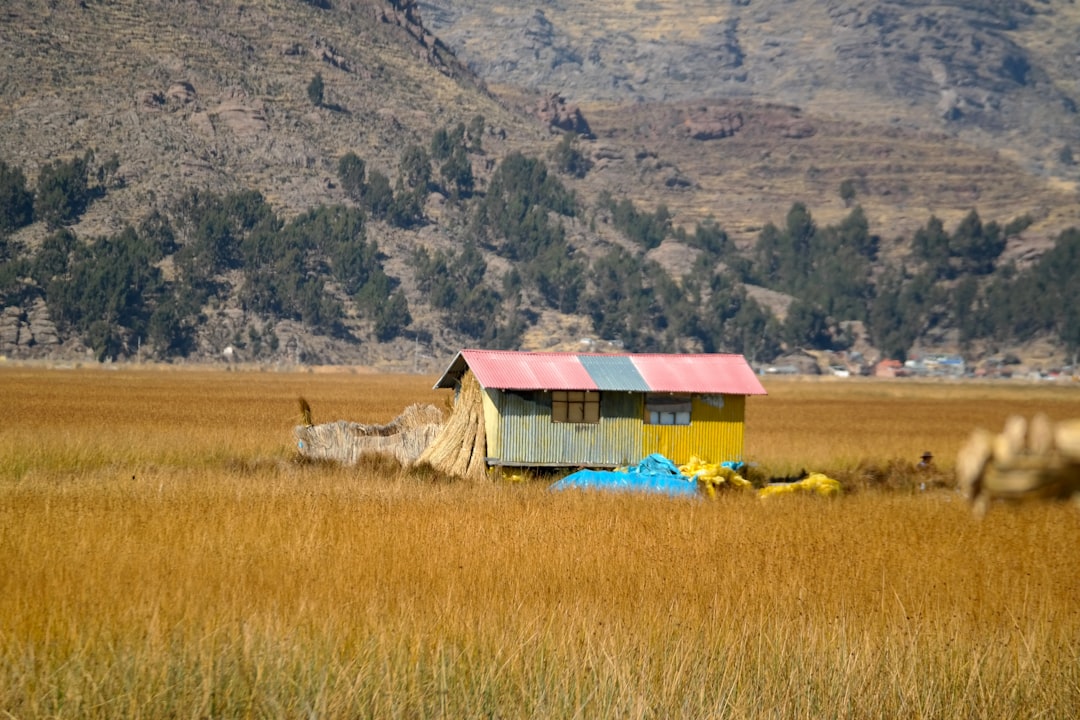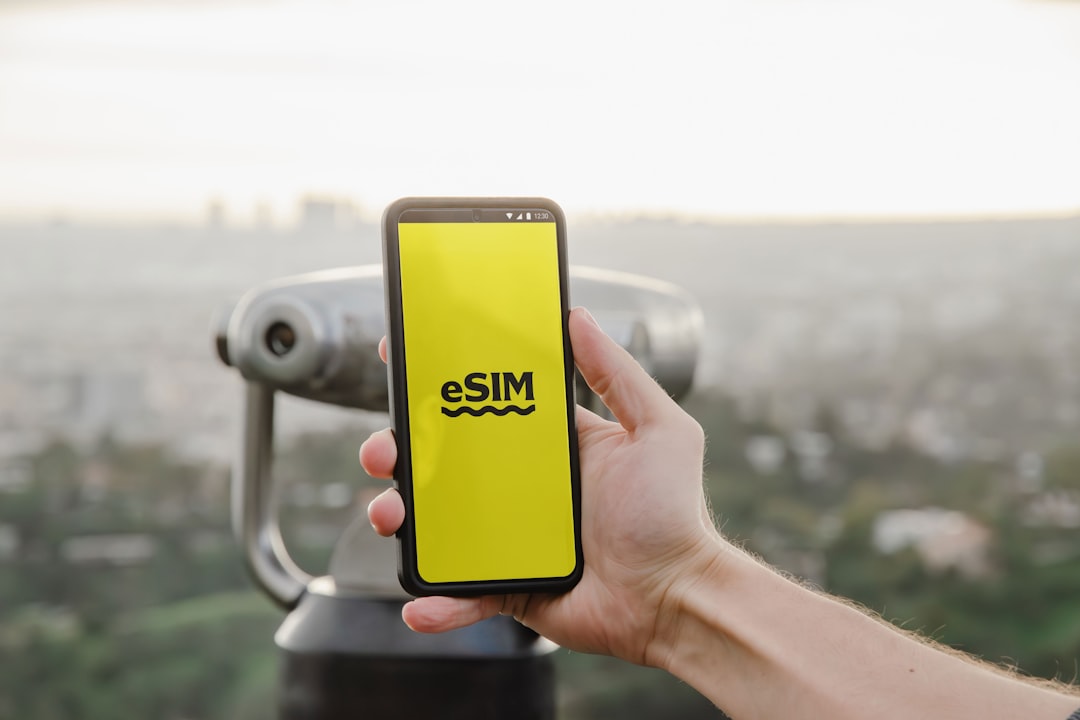From Solo Travel to Shared Events The Power of Nomad Communities

Introduction
The image of the digital nomad is often painted as a lone wanderer, a laptop‑clad explorer hopping from café to co‑working space, charting a personal course through unfamiliar cities. That image captures an essential truth: independence is at the heart of the nomadic lifestyle. Yet, as the community of location‑independent workers expands, a new reality is taking shape. Solo travel is increasingly intersecting with shared events, collaborative workspaces, and vibrant meet‑ups. The power of nomad communities lies not in erasing the freedom of the individual but in amplifying it through connection, shared learning, and collective energy.
In this article we explore how nomads transition from solitary itineraries to thriving community experiences. We examine the psychological and professional benefits of belonging, the mechanics of organizing and attending events, and practical strategies for building lasting networks on the road. Whether you are a first‑time traveler or a seasoned globetrotter, the insights below will help you harness the strength of community while preserving the autonomy that defines the digital nomad ethos.
The Evolution of Nomad Culture
From Backpacker to Remote Professional
Historically, long‑term travel was the domain of backpackers and adventure seekers. Their journeys were motivated by discovery, cultural immersion, and personal growth. The rise of high‑speed internet, affordable flight routes, and cloud‑based tools reshaped this landscape. Today, many travelers earn a living while on the move, swapping traditional office walls for cafés in Chiang Mai, co‑working hubs in Lisbon, and beachfront lounges in Bali.
The shift from “travel for travel’s sake” to “work while traveling” created a new class of itinerant professionals. Early adopters often felt isolated, relying on digital communication with colleagues back home. Over time, they began to seek out like‑minded individuals in each new city, giving birth to informal gatherings that later solidified into structured events.
The Rise of Nomad Meet‑ups
The first nomad meet‑ups were spontaneous coffee meet‑ups arranged through online forums and social media groups. As the number of participants grew, these gatherings evolved into regular events with agendas, speakers, and workshops. Platforms such as Meetup, Facebook Groups, and dedicated nomad networks now host thousands of events each month, ranging from skill‑sharing circles to cultural excursions.
These meet‑ups are more than social gatherings; they act as ecosystems where ideas are exchanged, collaborations are forged, and newcomers receive guidance. The transition from ad‑hoc coffee chats to organized conferences marks a maturation of the nomad community, reflecting a collective desire for deeper engagement.
Why Community Matters for Digital Nomads
Reducing Loneliness and Boosting Mental Health
Loneliness is a common challenge for remote workers. The absence of a stable office environment means fewer daily social interactions, and constant relocation can erode support structures. Regular participation in community events offers a sense of belonging, reduces feelings of isolation, and provides emotional scaffolding. Studies on remote work show that employees with strong social connections report higher job satisfaction and lower stress levels.
Nomad events create spaces where individuals can share stories, vent frustrations, and celebrate successes. The simple act of seeing a familiar face in a new city can transform a stressful day into a collaborative problem‑solving session.
Enhancing Professional Growth
Community environments foster organic mentorship and skill transfer. When nomads gather, they bring diverse expertise—from software development and graphic design to content marketing and e‑commerce. Informal knowledge exchanges—such as “show and tell” sessions or lightning talks—allow participants to learn new tools, adopt best practices, and stay ahead of industry trends.
Moreover, community events often attract sponsors, investors, and startup founders seeking talent. Being present at a well‑attended meet‑up can open doors to freelance contracts, partnership opportunities, or even full‑time remote positions.
Building Trust and Collaboration
Trust is a cornerstone of any collaborative effort. In a nomadic context, trust must be built quickly because projects often involve individuals from different time zones, cultures, and work habits. Repeated face‑to‑face interactions at events accelerate trust formation. When nomads see each other in person, they can gauge work ethic, communication style, and cultural fit more accurately than through digital profiles alone.
These trust bonds translate into smoother remote collaborations, shared resources, and joint ventures that might otherwise never materialize.
Types of Nomad Events and Their Unique Value
Co‑Working Day Sessions
Many cities host “co‑working days” where multiple nomads share a space for a set number of hours. These sessions blend productivity with social interaction. Participants benefit from a structured environment that reduces procrastination while also having opportunities for spontaneous brainstorming.
Key advantages:
- Immediate access to a community of focused workers
- Opportunities for real‑time feedback on projects
- Easy networking through shared coffee breaks
Skill‑Sharing Workshops
Workshops are focused gatherings where one or more members teach a specific skill. Topics range from advanced JavaScript frameworks to mindfulness practices for remote workers. The hands‑on format encourages participants to apply new knowledge immediately, fostering a culture of continuous learning.
Benefits include:
- Direct learning from peers who have faced similar challenges
- Creation of a repository of recorded sessions for future reference
- Strengthening of the community’s collective expertise
Cultural Excursions
Travel is at the core of the nomad lifestyle, and cultural excursions blend exploration with community bonding. Organized tours of historic sites, food tastings, or local festivals provide a shared experience that deepens relationships.
These outings also serve a practical purpose: they help newcomers navigate unfamiliar environments, learn local customs, and discover hidden work‑friendly spots.
Hackathons and Innovation Sprints
Intensive, time‑boxed events like hackathons bring together developers, designers, and business thinkers to solve a problem or build a prototype. The collaborative pressure of a 24‑hour sprint pushes participants out of comfort zones and results in rapid skill acquisition.
Outcomes often include:
- Prototypes that can be turned into viable products
- New partnerships formed under high‑stress conditions
- Visibility for participants within the broader nomad ecosystem
Conferences and Summits
Larger-scale events gather hundreds of nomads, industry leaders, and investors. They feature keynote speakers, panel discussions, and expo halls. While travel costs are higher, the exposure to cutting‑edge ideas and high‑profile networking opportunities can be transformative.
Conference attendance can:
- Position attendees as thought leaders within their niche
- Provide access to funding opportunities for startup ideas
- Offer a snapshot of emerging trends across multiple industries
How to Find and Choose the Right Events
Leverage Online Platforms
Most nomad communities maintain a presence on platforms such as:
- Meetup – searchable by city, topic, and date
- Facebook Groups – often host event calendars and discussion threads
- Eventbrite – lists both free and ticketed events with detailed descriptions
- Slack and Discord channels – dedicated to specific regions or industries
By joining multiple groups, you can cross‑reference events to find those that align with your interests and schedule.
Evaluate Event Credibility
Before committing, assess:
- Organizer reputation – look for reviews, past event photos, and participant testimonials
- Speaker lineup – reputable speakers indicate a higher quality experience
- Agenda relevance – ensure the topics match your professional or personal growth goals
- Community size – a balanced size (30‑150 participants) often provides intimacy without feeling overcrowded
Align with Personal Goals
Ask yourself:
- Am I looking for networking, learning, or pure social connection?
- Do I prefer short‑term meet‑ups or multi‑day conferences?
- Is the location convenient given my current itinerary?
Answering these questions helps filter events that will deliver maximum value.
Preparing for Your First Nomad Event
Research the Host City
Even if the event is hosted in a co‑working space you’ve never visited, a quick online search can reveal:
- Public transport options and nearest stations
- Nearby cafés or restaurants for post‑event networking
- Safety considerations and local customs
Having a basic map of the area reduces anxiety and frees up mental space for engagement.
Set Clear Objectives
Define what you hope to achieve:
- Meet three new professionals in your field
- Learn about a specific tool or methodology
- Pitch a project idea to potential collaborators
Writing these objectives down gives you a measurable way to evaluate the event’s success later.
Prepare an Elevator Pitch
A concise self‑introduction (30‑60 seconds) that covers:
- Who you are and what you do
- Your core expertise or product
- What you’re looking for (partnership, feedback, mentorship)
Practicing this pitch ensures you can confidently articulate your value during spontaneous conversations.
Pack Smart
Essentials for any event:
- Business cards or QR code linking to your portfolio
- A fully charged laptop or tablet
- Notebook and pen for jotting ideas
- Portable charger for long days of networking
Having these items at hand signals professionalism and readiness.
Making the Most of the Event Experience
Arrive Early, Stay Late
Getting to the venue a few minutes early allows you to settle in, observe the space, and start conversations before the crowd arrives. Likewise, staying after the official program ends can lead to deeper, informal discussions with speakers and organizers.
Engage Actively
- Ask thoughtful questions during sessions
- Offer insights when appropriate, even if you’re not an expert
- Volunteer for hands‑on activities or breakout groups
Active participation raises your visibility and encourages reciprocal engagement.
Follow Up Promptly
Within 24‑48 hours, send personalized messages to people you connected with. Reference a specific point from your conversation to reinforce the memory. If you promised to share a resource, include it in the follow‑up. This simple step solidifies the relationship and opens the door for future collaboration.
Sustaining Community Ties After the Event
Join Local Slack or Discord Channels
Many events create post‑event channels where participants continue discussions, share resources, and plan future meet‑ups. Being active in these spaces extends the benefits of the event beyond the day it took place.
Organize Mini‑Gatherings
If you’re staying in the host city for a while, consider arranging a casual coffee or dinner with a few new contacts. Small, recurring gatherings help transition acquaintances into genuine friends and collaborators.
Contribute Content
Write a blog post recapping key takeaways, record a short video, or create an infographic summarizing the event’s highlights. Sharing this content with the community demonstrates thought leadership and provides value to those who could not attend.
Building a Personal Nomad Brand
Curate an Online Presence
Your digital footprint acts as the first impression for many community members. Maintain:
- An up‑to‑date LinkedIn profile with clear descriptions of remote work experience
- A personal website or portfolio showcasing projects, case studies, and testimonials
- Active social media accounts (Twitter, Instagram) where you share insights from events, travel experiences, and professional milestones
Consistent Visual Identity
Use the same profile picture, color scheme, and tagline across platforms. Consistency helps others recognize you quickly, especially when you meet them at different events around the world.
Share Knowledge Regularly
Host webinars, write guest posts for nomad blogs, or lead workshops at meet‑ups. By positioning yourself as a knowledge‑giver, you attract a community that values your expertise and is more likely to refer opportunities your way.
Overcoming Common Challenges
Balancing Workload and Community Involvement
It can be tempting to prioritize networking over billable work, especially when events are exciting. Set boundaries by allocating specific time blocks for event attendance and protecting core work hours. Use productivity techniques such as Pomodoro or time‑boxing to ensure deliverables stay on track.
Navigating Cultural Differences
Nomad communities are inherently multicultural. Misunderstandings can arise from varying communication styles, punctuality expectations, or social norms. Approach each interaction with curiosity, ask polite clarifying questions, and be ready to adapt your behavior to local customs.
Dealing with Event Fatigue
Attending back‑to‑back events can lead to burnout. Schedule recovery days, engage in low‑key activities like reading or walking, and limit social media exposure during downtime. Remember that quality of connections often outweighs quantity.
The Future of Nomad Communities
Hybrid and Virtual Gatherings
Even as in‑person events regain momentum, virtual meet‑ups will remain a staple. Hybrid formats allow participants who cannot travel to join live streams, engage in breakout rooms, and network through digital platforms. This inclusivity expands the reach of communities and democratizes access to knowledge.
Niche Micro‑Communities
As the nomad population diversifies, specialized sub‑communities will emerge—such as “eco‑nomads” focused on sustainable travel, “tech‑nomads” centered on AI and blockchain, or “creative nomads” devoted to art and design. These micro‑communities will provide deeper relevance for members seeking highly targeted support.
Integrated Co‑Living and Co‑Working Ecosystems
Future hubs may combine co‑living, co‑working, and event spaces under one roof, offering seamless transitions from work to social activities. Such ecosystems will foster 24/7 collaboration, allowing projects to evolve organically as people share meals, brainstorm on lounges, and unwind together.
Practical Checklist for Transitioning from Solo Travel to Community Engagement
- Identify your goals – networking, learning, collaboration, or social connection
- Research local groups – use Meetup, Facebook, Slack, and Discord
- Evaluate event credibility – check organizer reputation and past feedback
- Prepare essentials – business cards, digital portfolio, notebook, charger
- Craft an elevator pitch – concise, clear, and memorable
- Set personal objectives for each event – measurable outcomes
- Arrive early and stay late – maximize networking opportunities
- Engage actively – ask questions, share insights, volunteer
- Follow up within 48 hours – personalized messages, shared resources
- Maintain an online presence – consistent branding, regular content
- Balance work and community – schedule dedicated focus time
- Adapt to cultural nuances – stay curious and respectful
- Plan recovery time – avoid event fatigue and burnout
Conclusion
The digital nomad movement is no longer defined solely by solitary laptops on sun‑lit balconies. It is a vibrant tapestry woven from shared experiences, collaborative projects, and communal celebrations. By moving from solo travel to active participation in nomad events and meet‑ups, individuals unlock a multiplier effect: personal fulfillment, professional growth, and a sense of belonging that transcends borders.
Embracing community does not diminish independence; it enhances it. The support, knowledge, and trust generated within nomad networks empower each traveler to take bolder risks, pursue ambitious ventures, and navigate the inevitable challenges of a location‑independent life with confidence.
As you chart your next destination, consider not only the places you will work but also the people you will meet. Seek out the gatherings that resonate with your goals, prepare to contribute authentically, and let the collective energy of the nomad community propel you toward new horizons. The power of shared events is waiting—step into it, and watch your solo journey transform into a thriving, collaborative adventure.
Random Posts

From Home Base To Global Roamer A Starter Guide
Ready to trade your home office for sunrise over new skylines? This starter guide gives you the mindset shift, practical steps and resources to launch a sustainable global nomad life
1 month ago

Lisbon to Tallinn A Nomad’s Guide to Europe
From sunny Lisbon’s affordable coworking scene to Tallinn’s medieval charm and booming tech hub, this guide maps the perfect nomad route, travel tips and essential info for a smooth, productive European adventure.
1 month ago

Smart Packing Hacks for Long Term Travel
Learn to pack light for months of travel by shifting your mindset, choosing multi-use items, and planning on-the-go replacements. These practical hacks turn bulky baggage into a flexible, organized system so you can focus on the adventure
3 weeks ago

Work Anywhere: Turn Your Favorite Cafe Into a High‑Performance Remote Office
Learn how to turn your favorite cafe into a high performance remote office with reliable WiFi, comfort, security and productivity, so you can work anywhere with confidence.
1 month ago

Tax Compliance Made Simple for Global Citizens
Learn how nomads can master tax compliance with a simple framework, essential residency rules, filing thresholds and treaty tips, turning tax stress into a routine part of your global lifestyle.
1 month ago
Latest Posts

Essential Software Every Remote Professional Should Use
Master remote work with essential tools: instant messaging like Slack, high definition video calls such as Zoom, and asynchronous voice apps. Streamline communication, stay connected and boost productivity.
1 day ago

Mastering Remote Work Productivity for Digital Nomads and Freelancers
Learn proven habits, tools, and tactics that help digital nomads and freelancers stay focused, deliver quality work, and maintain a sustainable lifestyle while traveling the world.
1 day ago

Tech‑Friendly European Towns Perfect for Remote Living
Discover Europe’s best small towns where fast internet, affordable living and vibrant tech communities let you work remotely while soaking up historic charm, lakeside views or mountain air.
1 day ago